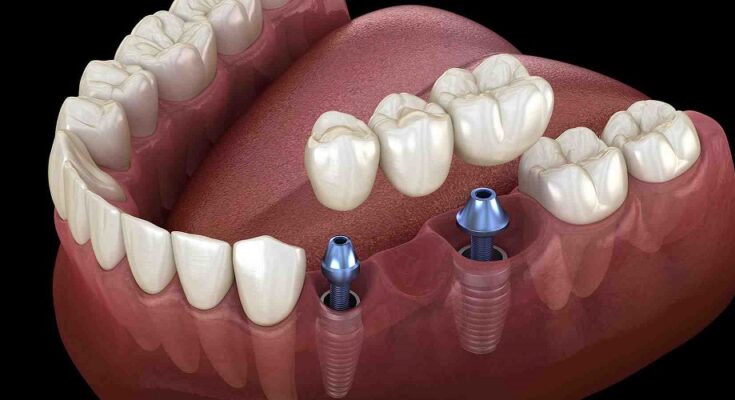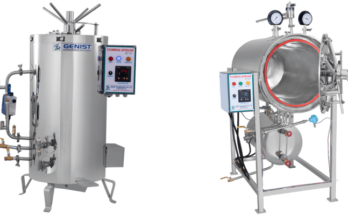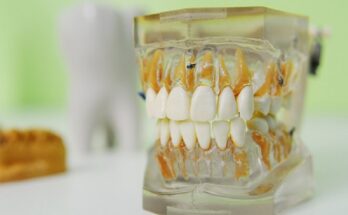Dental implants have transformed the area of restorative dentistry by providing a long-lasting and attractive replacement for lost teeth. Choosing the best dental implant, nevertheless, can be difficult given the variety of options available. This article seeks to demystify the many dental implant kinds so that you may choose the one that’s best for you.
What Are Dental Implants?
Before diving into the types, let’s briefly discuss what dental implants are. A dental implant is a titanium post that is surgically inserted into the jawbone to act as an artificial tooth root. A crown, bridge, or denture can be connected to an implant once it has fused with the bone to provide a solid and long-lasting substitute for missing teeth.
Types of Dental Implants
- Endosteal Implants
What they are:
The most popular kind of dental implant is an endosteal implant. They are typically shaped like small screws and are inserted directly into the jawbone.
Who they’re for:
Endosteal implants are suitable for most patients who have good oral health and sufficient jawbone density to support the implant.
Pros and Cons:
- Pros: High success rate, suitable for replacing one or multiple teeth.
- Cons: Not suitable for patients with insufficient jawbone density.
- Subperiosteal Implants
What they are:
Subperiosteal implants consist of a metal frame that is placed under the gum but above the jawbone. The post protrudes through the gum to hold the prosthetic tooth.
Who they’re for:
These are ideal for patients who do not have a healthy jawbone and cannot or do not want to undergo a bone augmentation procedure.
Pros and Cons:
- Pros: No need for bone grafting, quicker healing time.
- Cons: Less stable than endosteal implants, higher chance of complications.
- Zygomatic Implants
What they are:
These are the least common types of dental implants and are used in special cases. Instead of the jawbone, the implant is positioned in the cheekbone.
Who they’re for:
Zygomatic implants are for patients with insufficient jawbone density who are not candidates for bone grafting.
Pros and Cons:
- Pros: Provides an option for those who cannot have traditional implants.
- Cons: Complex surgical procedure, higher risk of complications.
- Mini Dental Implants (MDIs)
What they are:
MDIs are smaller than traditional dental implants and are often used for stabilizing lower dentures.
Who they’re for:
They are suitable for patients looking for a less invasive and more affordable option.
Pros and Cons:
- Pros: Less invasive, quicker recovery time, more affordable.
- Cons: Not as durable as traditional dental implants, may not be suitable for all cases.
Factors to Consider When Choosing Dental Implants
1. Jawbone Density
The density of your jawbone is a crucial factor in determining which type of dental implant is suitable for you. A CT scan can provide this information.
2. Overall Health
Your overall health, including any chronic conditions and medications you are taking, can affect the success of dental implants.
3. Budget
Different types of dental implants come with varying costs. To discover a solution that meets your budget, be sure to discuss this with your dentist.
4. Aesthetic Preferences
Some types of dental implants offer more natural-looking results than others. Talk to your dentist about your cosmetic objectives.
5. Longevity and Durability
While dental implants are generally durable, some types are more long-lasting than others. Consider how long you would like your dental implants to last.
The Importance of Consulting a Professional
Choosing the right type of dental implants is a decision that should be made in consultation with a qualified dental professional. They can evaluate your oral health, talk with you about your wants and preferences, and suggest the dental implants that are best for you.
Post-Procedure Care and Maintenance
Once you’ve gone through the process of selecting and receiving your dental implants, it’s crucial to understand the importance of post-procedure care and maintenance. Proper care can significantly impact the longevity and functionality of your dental implants.
Regular Check-ups
Regular dental check-ups are essential for monitoring the condition of your dental implants. Your dentist can identify any potential issues before they become significant problems, ensuring that your implants last as long as possible.
Oral Hygiene
Good oral hygiene is vital for the success of dental implants. Regular brushing and flossing can prevent plaque build-up, which could otherwise lead to gum disease—a significant concern for dental implant longevity.
Avoiding Harmful Habits
Habits like smoking or chewing on hard objects can damage dental implants. Discuss any lifestyle changes you may need to make with your dentist to ensure the longevity of your implants.
The Future of Dental Implants
As technology continues to advance, we can expect even more types of dental implants to become available, offering higher levels of customization and reducing the invasiveness of the procedure. Computer-guided implant surgery, for example, is becoming more prevalent, allowing for more precise implant placement and potentially quicker recovery times. This is especially true with advancements in specialized clinics, such as those offering Implant in Northeast Philadelphia, where cutting-edge technology is often at the forefront of patient care.
FAQs About Dental Implants
Q. 1. Are dental implants safe?
Yes, dental implants are safe for the majority of individuals and have a high rate of success. However, they include dangers like any surgical operation, so it’s crucial to speak with a knowledgeable dental specialist.
Q.2. How long do dental implants last?
Dental implants, if properly maintained, can survive for a very long time—often for the rest of your life. However, the crown or prosthetic attached to the implant may need replacement after 10-15 years.
Q.3. Can dental implants be done in one day?
Some procedures, often marketed as “Teeth in a Day,” allow for the placement of dental implants and temporary crowns in a single day. However they might not be appropriate for all patients.
Final Thoughts
Dental implants offer a versatile and durable solution for those looking to replace missing teeth. With so many options, it’s crucial to speak with a dental expert, like the best dentist St. Louis has to offer, to figure out which is the best fit for your requirements, way of life, and budget. You may choose a dental implant that will improve your oral health for years to come by learning the various types available and taking into account aspects like jawbone density, general health, and aesthetic preferences.
Also Read: Beauty from Within: Exploring Nutricosmetics and Skincare Supplements
So, if you’re thinking about getting dental implants, educate yourself and seek advice from experts. Dental implants can provide you the self-assurance and functionality you need to make your smile an investment that will truly pay off.




